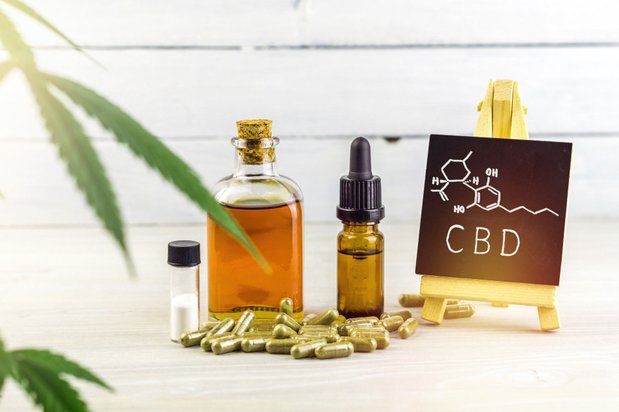As CBD continues to grow in popularity—with many swearing by its therapeutic properties—researchers have begun exploring ways in which CBD can serve as an alternative treatment for drug addiction, most notably heroin, cocaine, and meth addiction. CBD has also been tabbed as a potential alternative to opioids for pain management.
Despite the therapeutic properties purportedly associated with CBD, there are still questions regarding its safety and effectiveness as a treatment option.
CBD Benefits
Reduced Cravings and Anxiety in Heroin Addicts
A study published in the American Journal of Psychiatry reports that treatment with a non-psychoactive component of the marijuana plant—known as cannabidiol, or CBD—may reduce cravings and anxiety in heroin addicts.
According to Yasmin Hurd, director of the Addiction Institute of Mount Sinai and lead researcher for the study, intense cravings in early abstinence are what drive addicts back to substance abuse—before they can get enough days or weeks of sobriety under their belt to decrease their chance of relapse.
In a CNN article published earlier this year, Hurd said, "If we can have the medications that can dampen that [craving], that can greatly reduce the chance of relapse and overdose risk."
CBD and Stimulants
In addition to previous studies that have indicated the potential effectiveness of CBD in treating addiction to opioids and alcohol, research suggests that CBD may also benefit those addicted to methamphetamine, amphetamine, and cocaine.
Although current research is limited in this area, one clinical trial is currently underway to evaluate how CBD affects those addicted to stimulants, but the research won't be completed until December.
A review published in the journal Frontiers in Psychiatry determined that CBD, which hasn't been proven to curb cravings and withdrawal symptoms, plays on the human endocannabinoid system in such a way as to empower addicts to abstain or use less of a substance.
The review also indicated that CBD may be more effective as an adjunct treatment alongside behavioral therapies or in conjunction with THC, in certain cases.
Pain Management
According to a JAMA Network Open survey, almost half of all primary care providers (PCPs) are currently turning away patients with chronic pain—especially those with a history of addiction—in an effort to reduce opioid prescriptions.
Therefore, chronic pain management is falling more and more on psychiatrists and other addiction professionals. Promisingly, CBD is being hailed as a non-addictive alternative to using increasingly higher doses of opioids, as CBD is touted for potentiating efficacy and reducing tolerance to opioids.
Epidiolex®, a CBD oral solution, is available in the US as a medication for the management of refractory epilepsy. However, the solution may also provide relief to those with chronic pain conditions.
Safety and Quality Considerations
According to the World Health Organization, CBD "exhibits no effects indicative of any abuse or dependence potential...there is no evidence of public health-related problems associated with the use of pure CBD."
In contrast, current medications used to treat opioid addiction—such as buprenorphine and methadone—do carry the threat of dependence, as well as overdose.
Whether to treat pain, addiction, or both, scientists are researching CBD's potential but warn that there are CBD products on the market that have questionable quality and aren't held to rigorous testing requirements, so labels can be misleading.
In addition, CBD can interact negatively with certain prescription medications and has been known to actually increase anxiety in certain individuals.
Finally, it is potentially dangerous to blindly replace potentially more effective treatments with CBD. Chinazo Cunningham, M.D., professor of medicine at Albert Einstein College of Medicine in New York City, explains in a Consumer Reports article, "We know that methadone works, and we know that buprenorphine works. We have no idea if marijuana works."
|
If you or someone you know is seeking help from addiction, please visit our directory of treatment centers or call 800-891-8171 to speak to a treatment specialist. |








